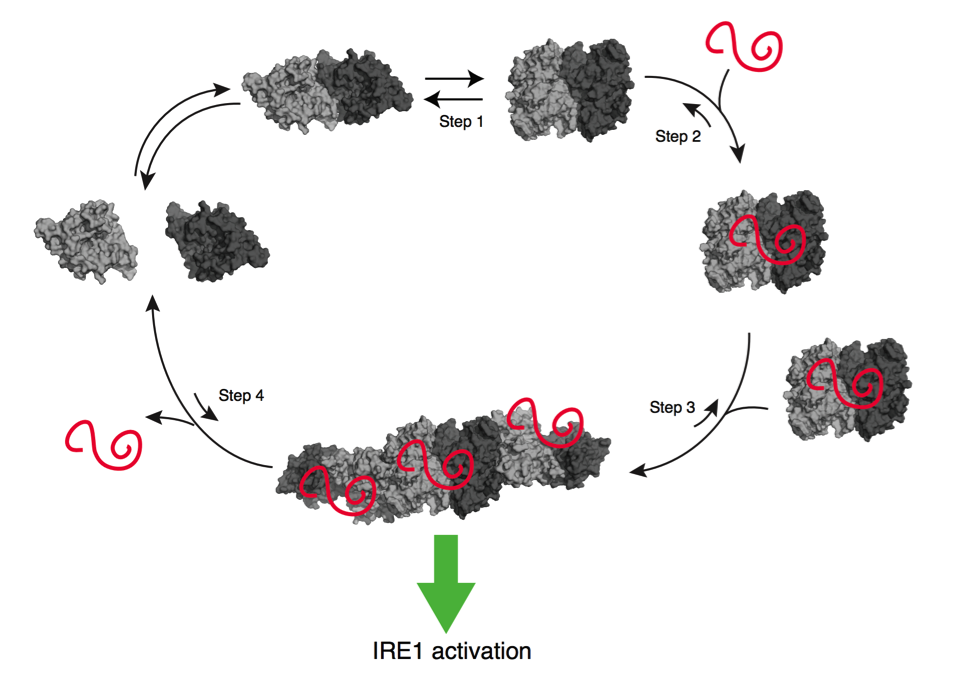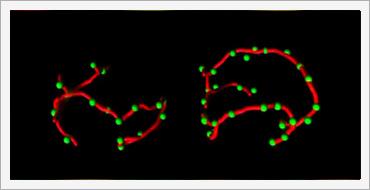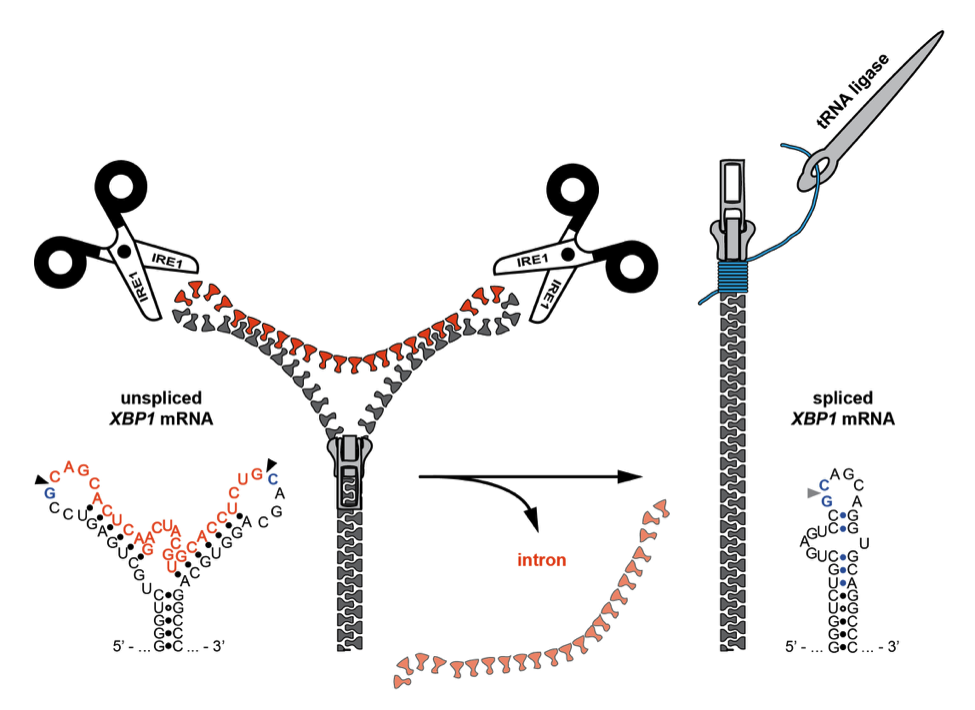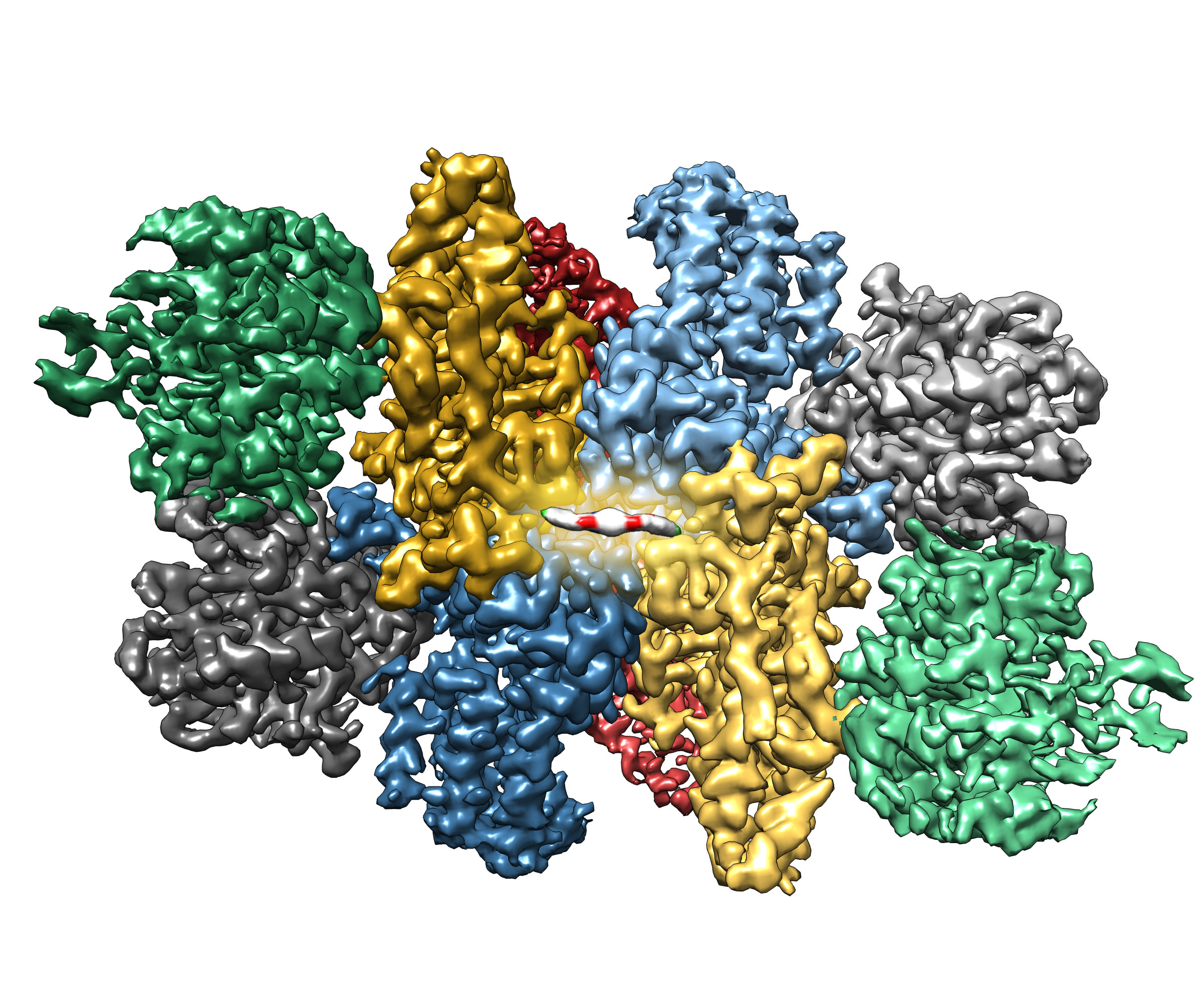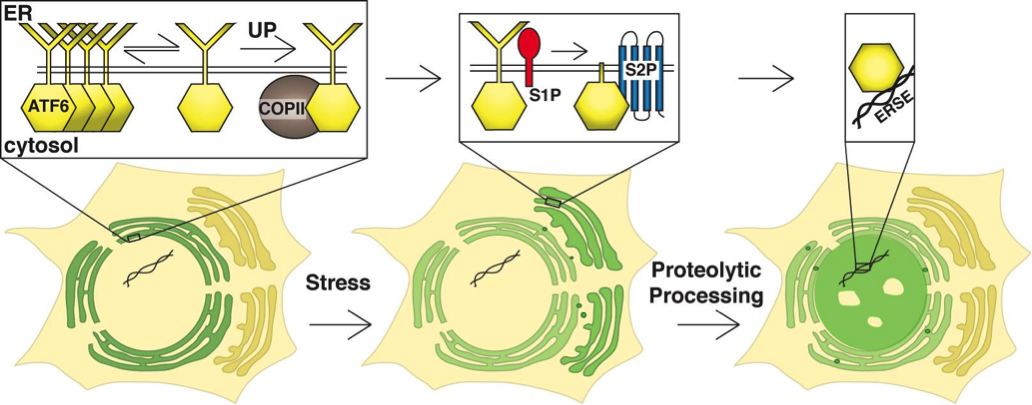-
The Unfolded Protein Response and IRE1 Signaling in Health and Disease
The unfolded protein response maintains protein homeostasis in the endoplasmic reticulum (ER), where the majority of transmembrane and secretory proteins are modified, folded and assembled. Read more..
-
Organellar quality control, dynamics, and inheritance
As subcellular compartments, organelles provide optimized conditions for distinct biochemical reactions. Explained by their endosymbiotic origin, mitochondria and chloroplasts retain their own unique genomes. Read more..
-
RNA processing in the unfolded protein response
Protein-folding stress in the ER activates the endonuclease domain of the stress sensor Ire1, triggering two distinct responses: non-conventional mRNA splicing and regulated Ire1-dependent decay (RIDD) of mRNAs at the ER surface. Read more..
-
The integrated stress response and its role in cognition
Cells maintain their proteins in a functional and balanced state by regulating protein synthesis, folding, trafficking and degradation. Read more..
-
ATF6-branch signaling through regulated proteolysis
One family of proteins that senses conditions in the ER and increases the organelle’s folding capacity is comprised of a family of membrane-bound transcription factors, named after the founding member ATF6 (activating transcription factor). Read more..
